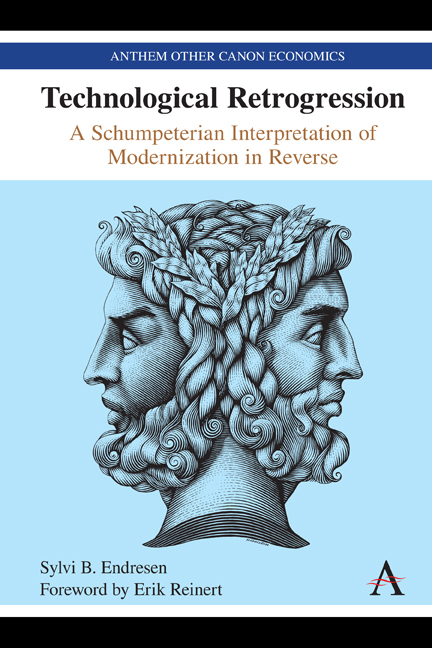Book contents
- Frontmatter
- Dedication
- Contents
- List of Figures
- Foreword
- Acknowledgements
- Preface: The Book within This Book
- Introduction: The Concept of Technological Retrogression
- 1 Challenging Linearity and Irreversibility
- 2 Perspectives on Technological Heterogeneity
- 3 Production Systems and Work Histories
- 4 Empirical Evidence of Technological Retrogression: The Sri Lankan Case
- 5 Empirical Evidence of Technological Retrogression: The Malaysian Case
- 6 A Theory of Technological Retrogression
- References
- Index
3 - Production Systems and Work Histories
Published online by Cambridge University Press: 17 June 2021
- Frontmatter
- Dedication
- Contents
- List of Figures
- Foreword
- Acknowledgements
- Preface: The Book within This Book
- Introduction: The Concept of Technological Retrogression
- 1 Challenging Linearity and Irreversibility
- 2 Perspectives on Technological Heterogeneity
- 3 Production Systems and Work Histories
- 4 Empirical Evidence of Technological Retrogression: The Sri Lankan Case
- 5 Empirical Evidence of Technological Retrogression: The Malaysian Case
- 6 A Theory of Technological Retrogression
- References
- Index
Summary
The production system approach
We have moved from the grandest of theory, the philosophical discussion of linearity of history, to theories of development: modernization theory and theories inspired by Marxism. How students of fishing societies were inspired by these bodies of thought was treated next. This chapter presents the next step in the operationalization ladder: How do we, in the challenging context of fieldwork, identify relations so that we can conclude on societal properties and processes? I have designed for this purpose ‘the production system approach’, which enables identification of relations. The traditional production system is contrasted to the industrial system, which entered the village with the modernization of technologies and integration into remote markets. I conclude that fishermen, whether traditional or modern in terms of technology, cannot easily be put into the one or the other category in terms of production system, thus supporting the ‘interconnected relations’ stance. This chapter also describes in detail the ‘work history method’, crucial in discovering technological retrogression. The fishermen's technological pasts were documented, providing a rich empirical material which is explored in the next chapters.
The concept of production system
A production system may be defined as interrelations of relations essential to the reproduction of a localized group of people's material existence, such as natural resources, labour, technology, capital and mechanisms of surplus distribution. A community's social and economic relations with the larger society are also part of their production system; the economic relations with the world outside include flows of capital; labour and commodities, as well as the social relations necessitated by these flows. For instance, social relations of a political nature, such as state regulation of resource exploitation, may condition the economic activities of rural villages. The extent to which production systems are integrated into the larger society varies in time and space. If only new technology is accepted (and other relations of the production system within which the new technology originates are avoided), the system is kept partially closed (selective modernization). Such societies exist; whereas some Amish communities are closed to new technology, American and Canadian Mennonites may protect their culture by keeping constant everything but their technology, which they import from the outside world. It follows that the concept of production system denotes social and economic relations within a society.
- Type
- Chapter
- Information
- Technological RetrogressionA Schumpeterian Interpretation of Modernization in Reverse, pp. 77 - 114Publisher: Anthem PressPrint publication year: 2021



